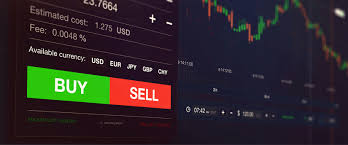
Unlocking Profitability: The Power of Forex Trading Signals
In the fast-paced world of forex trading, where every second counts and the market dynamics can shift dramatically, traders are constantly seeking an edge. One of the most effective means of gaining this edge is through the use of forex trading signals. These signals serve as invaluable tools for traders at all levels, providing insights and recommendations based on market analysis. In this article, we will delve deep into what forex trading signals are, their importance, and how to effectively utilize them in your trading strategy. Additionally, we will discuss how you can find forex trading signals Best South African Brokers to help you navigate the forex landscape.
What Are Forex Trading Signals?
Forex trading signals are essentially notifications or alerts that provide information about potential trading opportunities in the forex market. These signals can indicate when to buy or sell a particular currency pair, often including information about the expected price movement and risk management parameters. Signals are generated based on a combination of technical analysis, fundamental analysis, and market sentiment analysis.
The Importance of Forex Trading Signals
The significance of forex trading signals lies in their ability to simplify the trading process for both novice and experienced traders. Here are several reasons why they are essential:
- Time-Saving: With market movements happening rapidly, analyzing charts and indicators can be time-consuming. Trading signals provide instant notifications, allowing traders to act quickly.
- Stay Informed: Signals often come with analysis and commentary from seasoned traders or algorithms, helping traders stay informed about market trends.
- Emotional Control: Trading can be an emotional rollercoaster. Using signals helps traders stick to a strategy and reduce emotional decision-making.
- Educational Tool: For beginners, signals can serve as a learning resource, helping them understand the rationale behind specific trading decisions.
Types of Forex Trading Signals
There are various types of forex trading signals available, each catering to different trading strategies and preferences:
- Manual Signals: These are provided by professional traders or analysts who analyze the market and send out trade setups based on their findings. Traders can benefit from their expertise and insights.
- Automated Signals: Generated by trading algorithms or bots that analyze the market in real-time, these signals provide trade setups based on preset criteria and preferences.
- Charting Signals: These signals are based on technical analysis and chart patterns. They focus on price movements and indicators to predict future price actions.
- Fundamental Signals: These are based on news events and economic indicators. Traders use these signals to capitalize on market volatility caused by economic releases.

How to Create Effective Forex Trading Signals
For those interested in creating their own forex trading signals, here are some essential steps:
- Market Analysis: Conduct thorough analyses of the forex market using both technical and fundamental analysis tools. Identify trends, key levels of support and resistance, and news events that may affect currency prices.
- Signal Generation Criteria: Establish clear criteria for generating signals. This can include specific technical indicators, price movements, and other factors that you deem important.
- Backtesting: Before implementing signals in a live trading environment, backtest them against historical data. This will help you ascertain their effectiveness and fine-tune your strategy.
- Risk Management: Define your risk management strategy clearly. Determine how much of your trading capital you’re willing to risk on each trade based on the signals generated.
Choosing the Right Signal Provider
While creating your own signals can be rewarding, many traders opt to utilize professional signal providers. Here’s how to choose the right one:
- Reputation: Look for providers with a proven track record. Research reviews and testimonials from other traders.
- Transparency: A reliable signal provider should offer transparency about their trading strategies and past performance. Avoid those who make unrealistic promises of high profits.
- Trial Period: Many providers offer a free trial period. Use this opportunity to assess the quality and effectiveness of their signals.
- Support: Assess the quality of customer support. A good signal provider should offer assistance when needed.
Integrating Signals into Your Trading Strategy
Once you have chosen a reliable signal provider, it’s crucial to integrate their signals into your trading strategy effectively. Here are some tips:
- Develop a Trading Plan: Incorporate signals into a well-defined trading plan, specifying entry and exit points, stop losses, and profit targets.
- Combine with Personal Analysis: Use signals as a supplement to your analysis. Combine your insights with the signal provider’s recommendations to make informed decisions.
- Keep Records: Maintain a trading journal documenting the performance of the signals you follow. Analyze your trades to determine what works best for you.
Conclusion
Forex trading signals can significantly enhance your ability to identify and capitalize on trading opportunities. By understanding what they are, how they work, and incorporating them into your trading strategy, you can improve your chances of success in the forex market. Whether you’re a novice or an experienced trader, leveraging signals can provide clarity and guidance amidst the complexities of currency trading. Remember to take your time, conduct thorough research, and choose reputable signal providers to maximize your trading potential.

Comentários